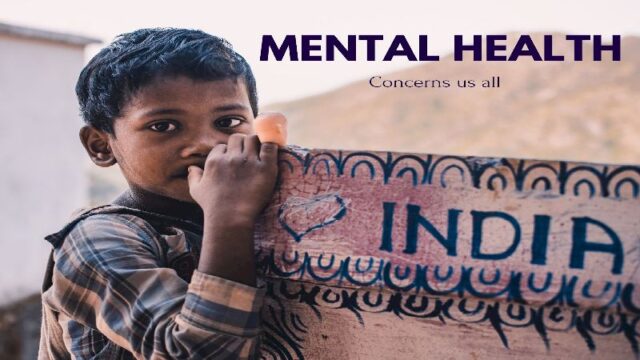Mental diseases have risen to the top of the global health burden, with no indication of a global decline since 1990. According to a 2017 estimate of the burden of mental health disorders across India’s states, as many as 197.3 million individuals sought mental health treatment. There were approximately 45.7 million persons with depressive disorders and 44.9 million with anxiety disorders in this group. The problem has worsened as a result of the Covid-19 outbreak, making it a global concern.
The astonishing estimates, however, leave out millions of people who have been directly or indirectly affected by the problem, as well as those who are stigmatized, making it difficult for them to seek treatment.
The lack of knowledge and understanding, as well as self-diagnosis and stigma, are all contributing to the increased difficulty in dealing with mental health concerns. It’s critical to realize that the only way to determine whether or not someone has a mental disorder is to create screening criteria. It is critical to dispel the myth that mental health only refers to the absence of mental disease. The World Health Organization defines mental health as a condition of well-being in which a person recognizes their own potential, is able to cope with everyday challenges, works effectively, and contributes to society.
Biological, social, psychological, inherited, and environmental stresses all contribute to mental disease. Individuals and groups are predisposed to poor physical and mental health, greater risk for numerous physical and mental disorders, and poorer outcomes when such illnesses do develop as a result of socioeconomic determinants of health. The heritability of depression has been found to be around 40% in a genome-wide linkage research published in the Nature magazine. When biological twins with recurrent and severe major depression are evaluated, this figure rises to almost 70%. As a result, mental health issues are caused by societal variables and institutions such as gender, race, and ethnicity.
Long-awaited discussions and actions to address the problem of mental health access and care are slowly making their way into the mainstream. As this critical problem acquires traction, a multi-stakeholder approach is required to address the myriad difficulties on all fronts. To obtain excellent data, careful mapping and investigation are required. This is necessary to grasp the scope of the problem. This should then be used to put in place a comprehensive strategy that is backed up by increased governmental commitment, scientific knowledge, and a citizen-led movement.







